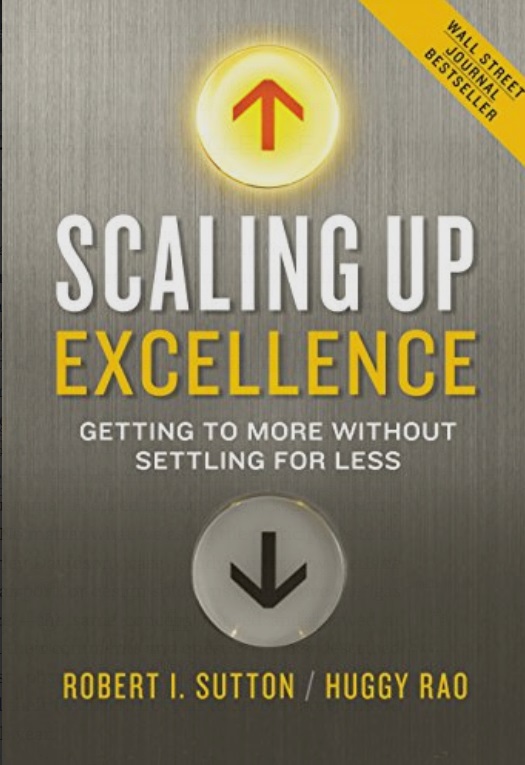When you attempt to scale up, it can seem like a real challenge for management in an organization. However, the good thing is that you have some goodness or excellence. When you have this excellence, you are challenging yourself as a leader to spread excellence among the many without having it all messed up. The main point of scaling does not only involve having numbers run up quickly, but also maintaining one’s beliefs, behaviors, and mindset.

Table of Contents
- 1 What Scaling Up Excellence Teaches
- 1.1 Individuals Influence Excellence
- 1.2 Think Of Scaling As A More Or Less Problem
- 1.3 Decide The Things That Do Not Work
- 1.4 Ignore Impractical Practices
- 1.5 Comparing Catholicism and Buddhism
- 1.6 Further Excellence Scaling Advice
- 1.7 Teams That Are Large Can Be Difficult
- 1.8 When Negative Behavior is Eliminated You Will Have Success
What Scaling Up Excellence Teaches
Individuals Influence Excellence
When we hear people mention scaling, it is often thought that only the business leaders conduct this. This is believed to be true for many, but what we see repetitively is the fact that it comes down to the individuals once scaling effectively works. Specifically, the obligation is felt mutually between the company and individuals.
Think Of Scaling As A More Or Less Problem
Thinking is always taking place among teams and leaders. This helps us to figure out what we can keep and what we can live without due to it being in the way.
Decide The Things That Do Not Work
We need to realize that what once worked in the past, will not necessarily be effective today. When scaling, what did not work in the past must be remembered. This also means that the strategies and traditions in the past will also no longer be effective.
Ignore Impractical Practices
When excellence needs to be spread, you need to keep in mind about what the company does on a daily level that ends up becoming an ineffective method. A good thing is that the majority of the companies are able to benefit from a performance evaluation. This evaluation is able to find out the amount of what works and what doesn’t.
Comparing Catholicism and Buddhism
During the writing of Scaling Up Excellence, both Robert Sutton and Huggy Rao had gathered more than 50 decisions concerning scaling that many create while excellence is being spread. As writing would take place, they would come to the same one that would concern the comparison of Catholicism and Buddhism. This comparison was first suggested by a venture capitalist who compared the similarities in the way things are accomplished to spread their messages..
There was a lot of time spent on this by the authors and they finally concluded that the replication of the message was the best way to go. This replication process is seen among many organizations where their history is long, but then the replication will not work when they decide to make a different approach.
Further Excellence Scaling Advice
Robert and Huggy believe that many think that rules do not apply because they believe that they are above them. While this may be true because of the skills involved or a customer’s needs, it is actually the mindset of thinking we are above the rules.
Teams That Are Large Can Be Difficult
When you have more than 3 or 4 members on a team, the organization’s coordination can be difficult because more members need to have the same information. When the teams are smaller, they can concentrate on the work. The smaller teams do not become dysfunctional or cause conflict.
When Negative Behavior is Eliminated You Will Have Success
Success can be achieved by eliminating behavior that is negative and increasing good behavior. Regardless of the type of bad behavior it is, it has a more powerful effect then what we see with behavior that is good. The bad behavior becomes contagious, lasts longer, and is difficult to be removed. This ultimately prevents the spread of goodness. So, in order to spread good, the bad must be eliminated.


